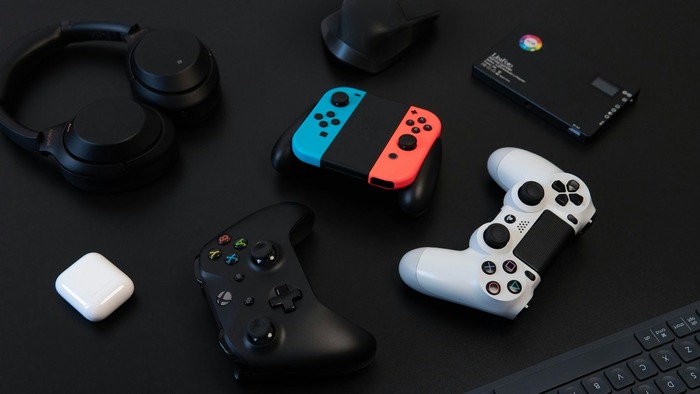How Blockchain Is Changing Online Gaming Forever
By Alex@PC╺
- PS4
- PS5
- XBox One
- Series X
- PC

Blockchain is reshaping online gaming in ways that are hard to ignore. With its ability to provide security, transparency, and true ownership of digital assets, this technology is opening doors to opportunities that traditional gaming models can’t match.
By 2028, the global gaming industry is expected to grow to $435 billion — and blockchain’s role is a big part of that projection.
One area where blockchain’s impact is becoming clear is in crypto gambling sites. By integrating blockchain, these platforms offer players enhanced security and fairness while enabling faster, more transparent transactions. This not only builds trust but also sets a new standard for how online gaming platforms operate.
Blockchain’s Core Features Enhancing Online Gaming
Security matters a lot in online gaming. Blockchain brings safety with its permanent record and strong code to hide data. Each deal on a blockchain gets written down forever and cannot be changed, which cuts down the chance for fraud or altering data. In the old ways, hacks could reveal your data, blockchain keeps player names as well as belongings safe.
For example, when you buy an in-game item, the information goes onto the blockchain. This list cannot be erased or changed, which makes it hard for thieves to fake deals or take player belongings. Since the system spreads out, thieves cannot shut down one computer to break the whole network. This builds trust for both regular and serious players who want honest play.
Transparent Transactions
Gaming systems have long struggled with transparency, especially when it comes to game rules, item trading, or financial transactions. Blockchain solves this with its decentralized and public ledger. Every transaction or change is visible to all participants, eliminating shady dealings behind the curtain.
For online games, this transparency adds fairness. Players can verify a game’s mechanics or ensure their transactions were completed without hidden fees.
For instance, disputes over rare item drops or currency exchanges become a thing of the past when outcomes are publicly recorded. Transparency also protects against “pay-to-win” schemes or developers altering mechanics unfairly to favor certain players.
Decentralized Ecosystems
Traditional gaming systems are run by one company that controls the game and its items as its economy. Blockchain changes this idea by creating systems where players have more control.
In games that use blockchain, items such as skins, weapons or characters become NFTs. You own these items and may swap or sell them outside the game’s structure if you wish. More importantly, these open systems let players join in decision-making through groups called Decentralized Autonomous Organizations (DAOs).
DAOs give communities the power to decide. Players vote on changes to the game, rules or even the creation of new parts. This approach moves control from a company to the players, so the community builds the gaming experience. It gives you a say in how your favorite game grows rather than simply watching it evolve.
Blockchain’s Role in Crypto Gambling Sites
One major feature of blockchain in gambling is that it offers provably fair algorithms. These systems let players check that games such as slots, roulette along with dice rolls are fair. Blockchain stores game results so that casinos cannot change the outcome after bets are made.
In this process, provably fair systems work with cryptographic hashes to produce random numbers. Players can examine the hashes to confirm the results and make sure no trickery takes place behind the scenes. It acts as if every game has a referee, only this referee is based on mathematics rather than a person.
Faster Transactions with Lower Costs
Blockchain is not only safe, it also offers fast and simple use. Regular online casinos use slow bank transfers or payment systems that cause delays when you add or take out money. Blockchain clears these obstacles.
Digital currencies such as Bitcoin or Ethereum let you exchange money quickly. Users add cash and start placing bets in minutes rather than wait many hours or days for bank approval. This fast system makes the game more fun, especially for players from other countries.
Revolutionizing In-Game Assets Through Blockchain
Before blockchain, the concept of truly owning in-game items was unheard of. Items like skins, weapons, and collectibles were locked to the game and controlled entirely by developers. Now, blockchain turns these items into non-fungible tokens (NFTs), giving players undeniable proof of ownership.
Think of it as owning a physical collectible card. You can sell it, trade it, or keep it forever — it doesn’t matter what the card store does. NFTs provide that same freedom in gaming, making virtual items more secure and valuable than ever.
Monetization and Player-Driven Economies
Blockchain is rewriting the rules when it comes to making money through gaming. Players are no longer passive consumers; they’re active participants in the economy. By trading NFTs or earning cryptocurrency, gamers can financially benefit from their time and skills.
This shift transforms games into ecosystems where every player has economic potential. It’s similar to freelancing or running a small digital shop, giving gamers more empowerment over their experience.
Interoperability Between Games
Traditionally, the items you earn in one game stay within that game. Blockchain flips this idea by enabling interoperability. That means you can use assets — like your character or a rare sword — across multiple games.
Interoperability breaks down the siloed structure of gaming. It’s like being able to use your Starbucks gift card at a local diner — it removes unnecessary restrictions, creating a seamless experience across platforms.
For the players, this isn’t just about convenience. It’s about expanding the value and usefulness of their digital assets. No longer are you tied to a single game or platform for your investments to have meaning. Only blockchain makes this possible at scale, and it’s already changing how both developers and players think about in-game economies.
